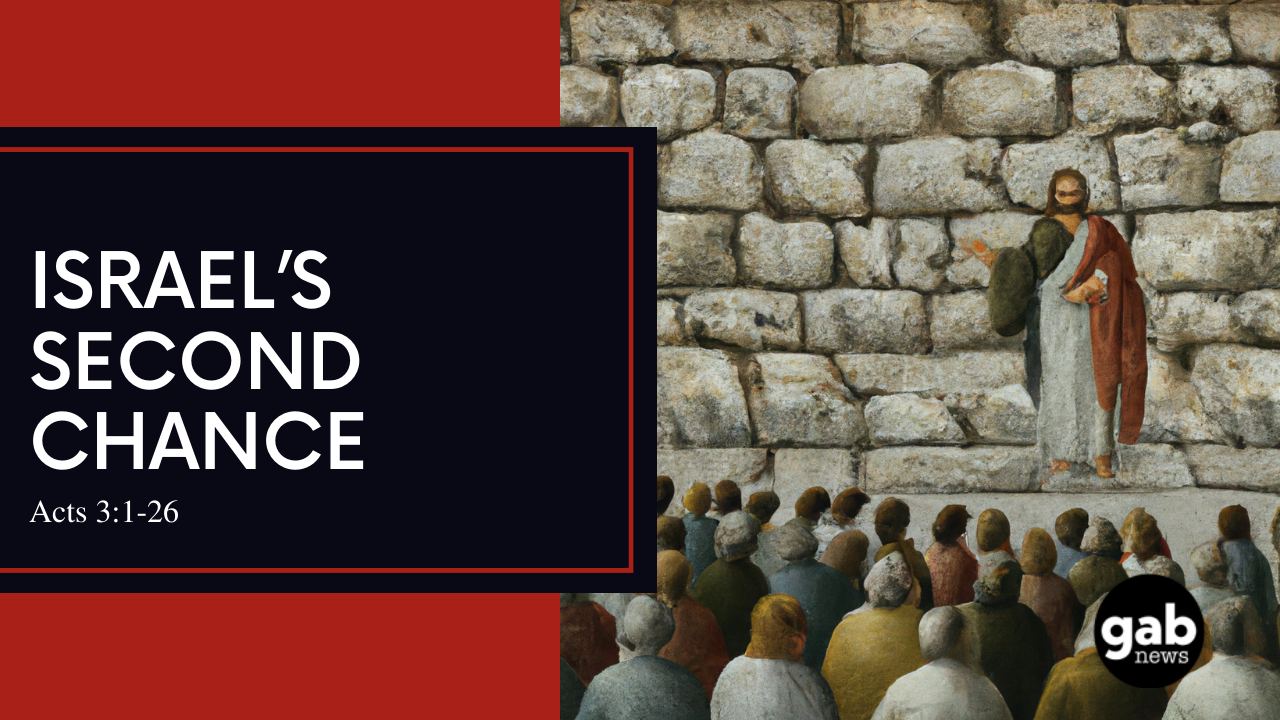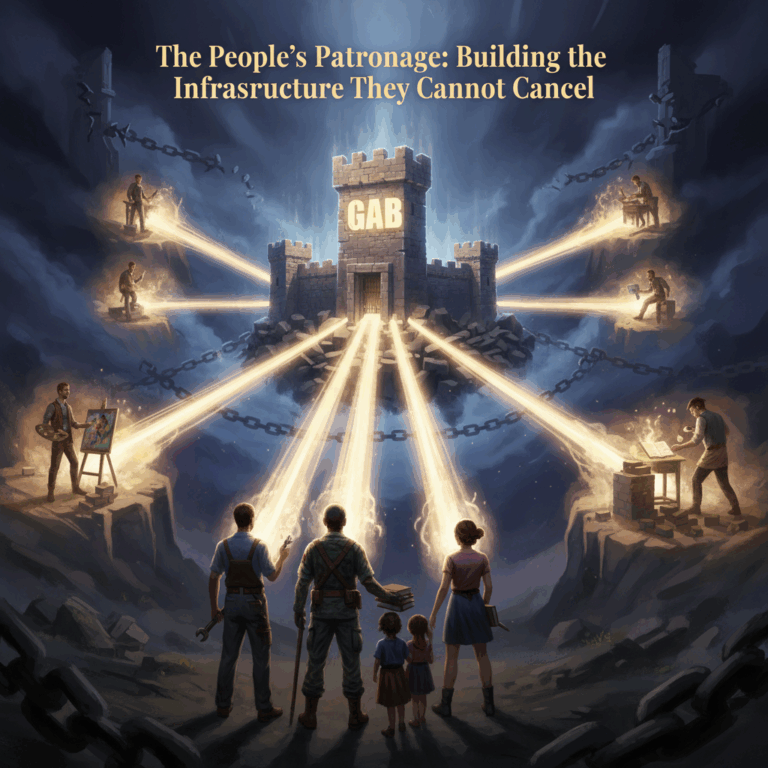Introduction
In each of the Synoptic Gospels (Matthew, Mark, and Luke), as Jesus preached against the wicked and perverse generation in Israel, He made a statement that has puzzled many Christians even to this day. “Blasphemy against the Son of Man will be forgiven, but he who blasphemes against the Holy Spirit, that will not be forgiven.” Many people hear this and are terrified, “what if I committed the unforgivable sin? What if I have blasphemed against the Holy Spirit? How do I know my sins can be forgiven or not?”
If blasphemy against the Holy Spirit is an unbeliever speaking against the work of the Holy Spirit on earth, no one who doesn’t believe in Jesus could ever be forgiven. So, surely that is not it. But then what does this mean? What is this sin?
When we look at the context of what Jesus said, he is preaching against the most wicked generation Israel ever had—the generation to whom the God of Israel appeared to Israel in the flesh, and proved who He was by many signs, wonders, and miracles, and yet they not only would not listen to Him, they put Him to death. They committed the ultimate act of blasphemy against the Son of Man. That would be forgiven. And that was forgiven.
But after Pentecost, Israel is given a second chance. The Holy Spirit has come down in power, filling the apostles and the church and doing the same mighty signs, wonders, and miracles that Jesus did. Israel is given a second chance to repent, and those who do not will be destroyed. That is the blasphemy against the Holy Spirit. Denying His work in the church, denying His power sent to testify to the Resurrection of Jesus Christ, and attacking and persecuting His people. Israel was given a second chance to repent, and after that judgment would fall upon them.
That is what we see in this passage demonstrated to us vividly. But unless we have eyes to see, we will miss this entirely.
“3 Now Peter and John went up together to the temple at the hour of prayer, the ninth hour. 2 And a certain man lame from his mother’s womb was carried, whom they laid daily at the gate of the temple which is called Beautiful, to ask alms from those who entered the temple; 3 who, seeing Peter and John about to go into the temple, asked for alms. 4 And fixing his eyes on him, with John, Peter said, “Look at us.” 5 So he gave them his attention, expecting to receive something from them. 6 Then Peter said, “Silver and gold I do not have, but what I do have I give you: In the name of Jesus Christ of Nazareth, rise up and walk.” 7 And he took him by the right hand and lifted him up, and immediately his feet and ankle bones received strength. 8 So he, leaping up, stood and walked and entered the temple with them—walking, leaping, and praising God. 9 And all the people saw him walking and praising God. 10 Then they knew that it was he who sat begging alms at the Beautiful Gate of the temple; and they were filled with wonder and amazement at what had happened to him.
11 Now as the lame man who was healed held on to Peter and John, all the people ran together to them in the porch which is called Solomon’s, greatly amazed. 12 So when Peter saw it, he responded to the people: “Men of Israel, why do you marvel at this? Or why look so intently at us, as though by our own power or godliness we had made this man walk? 13 The God of Abraham, Isaac, and Jacob, the God of our fathers, glorified His Servant Jesus, whom you delivered up and denied in the presence of Pilate, when he was determined to let Him go. 14 But you denied the Holy One and the Just, and asked for a murderer to be granted to you, 15 and killed the Prince of life, whom God raised from the dead, of which we are witnesses. 16 And His name, through faith in His name, has made this man strong, whom you see and know. Yes, the faith which comes through Him has given him this perfect soundness in the presence of you all.
17 “Yet now, brethren, I know that you did it in ignorance, as did also your rulers. 18 But those things which God foretold by the mouth of all His prophets, that the Christ would suffer, He has thus fulfilled. 19 Repent therefore and be converted, that your sins may be blotted out, so that times of refreshing may come from the presence of the Lord, 20 and that He may send Jesus Christ, who was preached to you before, 21 whom heaven must receive until the times of restoration of all things, which God has spoken by the mouth of all His holy prophets since the world began. 22 For Moses truly said to the fathers, ‘The Lord your God will raise up for you a Prophet like me from your brethren. Him you shall hear in all things, whatever He says to you. 23 And it shall be that every soul who will not hear that Prophet shall be utterly destroyed from among the people.’ 24 Yes, and all the prophets, from Samuel and those who follow, as many as have spoken, have also foretold these days. 25 You are sons of the prophets, and of the covenant which God made with our fathers, saying to Abraham, ‘And in your seed all the families of the earth shall be blessed.’ 26 To you first, God, having raised up His Servant Jesus, sent Him to bless you, in turning away every one of you from your iniquities.”
Acts 3:1-26
The Lame Man Healed (v. 1-10)
Peter and John go to the temple at 3:00 PM to join in the corporate prayer at the temple. This fact alone might be puzzling to some people. The Holy Spirit has come, why do they bother with the temple anymore? They are already collectively the new and more perfect temple of the Holy Spirit. So why do they go there? Because during this very brief period of time, the Old Covenant and the New Covenant are overlapping. They go for the same reason Jesus went to the temple. It is a leprous building that is condemned for destruction, but the worship being conducted there is still valid. It has not yet been left desolate. Further, it is going to become the center of opposition to the work of the Holy Spirit, just as it was the center of opposition to the work of Jesus. The temple is God’s throne on earth in the Old Covenant, and they go there to worship Him accordingly. That system is about to fall cataclysmically, but it has not fallen yet.
As they go, they meet a man who was “lame from his mother’s womb.” Men would take him to the gate of the temple to ask for alms. In the pre-modern world, there were no social welfare programs, obviously, and this was the way that the disabled would be cared for. Peter and John “fix their eyes” on this man, and Peter tells him to “look at us.” He complies, thinking they will give him alms. But Peter says “Silver and gold I do not have, but what I do have I give to you: In the name of Jesus Christ of Nazareth, rise up and walk.” Peter takes him by the hand to help him up, and Luke tells us that his feet and ankles were given strength. And not only was he able to stand up, we are told “he walked and leaped and praised God.” Anyone who has had major lower body surgery or injuries can see how miraculous this is. Just having a knee or hip replacement or even a severely broken leg requires you to re-learn how to walk and go through weeks of physical therapy. Here this man who has never walked in his life now not only has the physical strength in his legs and feet to walk but instantly knows how to.
And, this is a very public act, this is a man who is set before the most public place in Jerusalem every single day, that everyone who has ever gone to the temple has seen repeatedly. Everyone knows who he is and what his story is. And now they see him walking. All the people, we are told, were filled with wonder and amazement as they saw him walking with Peter and John in the temple.
Peter Preaches Repentance (v. 11-26)
The crowds rushed to Solomon’s portico where Peter and John and the formerly lame man were. And Peter begins to speak to them. Addressing them as the “Men of Israel.” He asks them why they marvel and why they think this was done in their own power or godliness. He tells them the God of our fathers, of Abraham, Isaac, and Jacob glorified His servant Jesus, whom you delivered up and denied in the presence of Pilate who wanted to let Him go. You denied the Holy One and the Just and asked for a murderer to be released instead. You killed the Prince of Life, and God raised Him from the dead, and we have all witnessed it. It was the name of this Jesus, whom you killed, and faithful allegiance to His name that made this man strong. What is Peter saying? He is telling the people who demanded Jesus be put to death that this man was made strong as a sign to them that Jesus rose from the dead and is their God, whom they killed.
But Peter does not tell them this out of bitterness or spite, just to fill them with guilt for their evil. He tells them, you did this in ignorance. You and your rulers didn’t know what you were doing. You did this, Peter says, because the prophets for centuries had testified that this was God’s plan all along. The Christ had to suffer and die. Even Peter, you will remember, did not understand this. When Jesus told him this exact line, what did Peter do? He said NO! I won’t let them kill you, Jesus. And what did Jesus say to him? “Get behind me, Satan.” Peter shared in their same ignorance, though obviously not to the same degree. But a sin done in ignorance is nevertheless a sin, and it is a sin that requires repentance.
This Peter also announces to them. You are guilty of this, this thing the prophets said would come to pass, so now you need to repent and be converted. Why should they be converted? 1. So their sins would be forgiven. But then also 2. So that times of refreshing may come from the presence of the Lord. This isn’t just individual, personal times of refreshing, but for Israel as a people. The Holy Spirit, through Peter, is offering Israel individually and corporately a chance at being refreshed, a chance at salvation. How does this refreshing come about? That God would again send Jesus Christ, whom heaven must receive until the restoration of all things. What does that mean? When is Jesus physically returning? When all things are restored. Now whether the restoration of all things happens progressively throughout all history by the power of the gospel working its way into the world or suddenly at His return, is a question earnest, faithful Christians have argued for millennia. But if the Parables of the Kingdom are an indication of how the gospel advances—a mighty tree growing from a tiny mustard seed and leaven working slowly and imperceptibly through a loaf—we should conclude that the kingdom is advancing and it is taking a long time. But what the Spirit through Peter is offering to Israel is a chance to be part of that restoration.
He points to what Moses told Israel in Deuteronomy. That one day a Prophet would be raised up that you should listen to. Not just any prophet among the many that appeared to Israel, but the Prophet. And Moses said, if you don’t listen to that Prophet, you will be destroyed. Peter tells them that all the other prophets, from Samuel onward pointed toward these exact days that they were living in. You are the sons of the prophets and of the covenant that God made with Abraham. What was the promise that God made to Abraham? In your Seed, all the nations of the earth shall be blessed. Who is the Seed of Abraham? Apostate Israel thought it was them, but the Seed is the true Israel, Jesus Christ. And here Peter says that the first nation of all the families of the earth to be blessed by Abraham’s Seed is Israel. How does He bless them? By turning them from their wickedness.
Conclusion
What does this mean? Peter speaks to Israel of the Old Covenant in the present tense, meaning it isn’t quite over yet. But he is pointing to the fulfillment of all those promises in Christ and no place else. Israel thinks their standing with God within His covenant is secure because they have the temple of the Lord. But Peter is standing there telling them—after proving the power of their God resides in them through the Holy Spirit—that no, you are guilty of murdering the Son of God and need to repent, because He is the foretold Prophet Israel needs to listen to or be destroyed. What is this scene? It is the New Covenant confronting the Old, it is the new temple at war with the old temple. This will become even more clear in the next chapter when the Old Covenant strikes back.
But what we see in this chapter is the beginning of everything Jesus said would happen, both to Israel and to His disciples. There was a judgment coming to Israel. This is a sword of Damocles that hangs over all their heads. The clock is ticking. And Peter and the apostles are begging them to get out before that judgment comes. And the astounding grace and patience of God is also demonstrated here. If it were us, we would not be so generous and forbearing that you kill the Son of God and are given an opportunity to repent. We would expect instant judgment for literally murdering God Himself. But God doesn’t do that. He forgives them even that. But the opportunity for repentance isn’t forever. Time is running out.
When we think of our own day, we are experiencing something similar. We live in an apostate nation, not unlike First Century Israel. We are a people who have been blessed with an abundance of God’s grace which we have spurned. We had so much Christian faithfulness everywhere. The gospel was preached everywhere, our entire society and civilization was Christian. Every aspect of it was undergirded by Christian faith, so much so, that the entire public morality that existed everyone simply took for granted. Just take one example. This chapter began with a paralyzed man. In the ancient, pre-Christian world, mentally and physically disabled people were despised and mocked. This man, even in Israel (especially in that generation) surely was abused and mistreated his entire life. He was defective, he must be cursed by God for a good reason, is what people thought. You see this in non-Christian societies all over the place. If you go to the Muslim world, for example, all their jokes are about blind people and mentally retarded people. We look at such behavior as totally repugnant. Mocking the weak and the frail could not be more disgusting to us. Western people think this is just basic human nature that we would have sympathy for those who are less fortunate. That is not basic human nature. That is the fruit of society being discipled by the Christian faith for centuries and millennia. But we just take such things for granted. But as we apostatize things like this disappear in a culture quickly. And that is only one example.
We become a society that can and should expect judgment, much as Israel had judgment coming. So we must be bold in proclaiming the Resurrected Christ, just as Peter was in this chapter. We must turn to Christ. He is the only way out of what is to come for our people. There is no other way. It is not too late.
And for us, this means living our entire lives as the people of this Resurrected Christ. Not just in part but in the whole. Every aspect of our lives should reflect the power of the Holy Spirit in us. Our lives must be a testament to His work in us. Our lives must be a sermon like Peter’s to an unbelieving world, and our lives must be a mighty wonder like the lame man being made to walk. That is, after all, what Christ has done in you. He has made you whole and complete.
So the charge to you is this: go forth boldly in the power of the Holy Spirit. Let your life be a continual sign and wonder to a faithless generation, and a proclamation to them that Jesus Christ has indeed risen from the dead. In the name of the Father, the Son, and the Holy Spirit. Amen!

Andrew Isker is the pastor of 4th Street Evangelical Church in Waseca, MN. He is a graduate of Minnesota State University and Greyfriar’s Hall Ministerial Training School, and he has served churches in Missouri, West Virginia, and Minnesota. He is the author (with Andrew Torba) of Christian Nationalism, and the author of the forthcoming book, The Boniface Option. Andrew, his wife Kara, and their five children reside in his hometown of Waseca, MN. He can be found on Gab @BonifaceOption.





